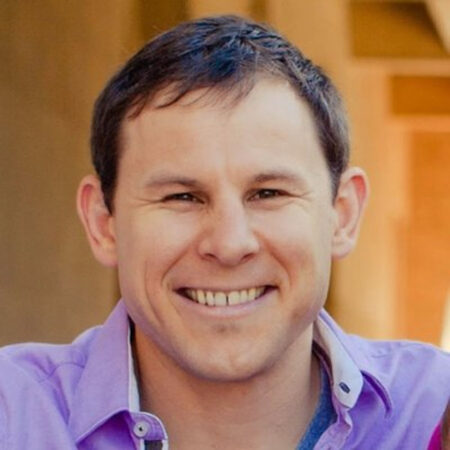Nick Cizek, PhD

Nick Cizek is founder and chief executive officer at FarmTest.
Nick was previously a sensor strategist for The Climate Foundation. He was also a fellow at the U.S. Department of Energy’s Advanced Research Projects Agency – Energy (ARPA-E), in Washington, D.C. His primary focus was making natural gas passenger vehicles as cheap and convenient as gasoline vehicles. He helped create ARPA-E’s $30M Methane Opportunities for Vehicular Energy (MOVE) technology development program. His other focus was the energy-water-food nexus, where he investigated potential technologies to make energy production more water efficient, freshwater production more energy efficient, and food production more water and energy efficient.
As a Hertz Fellow, Nick completed a PhD in applied physics at Stanford University, in Professor Mark Kasevich’s Atom Interferometry Precision Sensing Group. He studied the thermodynamics of lithium Bose-Einstein condensates, ultra cold atom clouds, to enable DARPA-funded precision atomic accelerometers, gyroscopes, gravitometers, and magnetometers. As an undergrad, Nick obtained a BA in physics, summa cum laude, from the University of Colorado at Boulder, where he completed a research honors thesis in the Atomic Physics Group of Professor Carl Wieman, Nobel laureate 2001 and a Hertz Fellow.
In the past, Nick has focused on two projects. One is founding a start-up commercializing novel pumped thermo grid scale electricity storage systems. In pumped thermo, energy is stored as heat across a temperature difference that is charged / discharged using a highly reversible heat pump engine. Thermal batteries are fundamentally different from electrochemical batteries, with potential for exceedingly low cost. The second project, which occurred as a member of the Facebook Sustainability Group with Bill Weihl, also a Hertz Fellow, was developing and implementing a strategy for leveraging social media to substantially reduce global CO2 emissions. Nick’s role included identifying companies and organizations that can use the >1-billion-person Facebook platform to solve sustainability problems, then helping them increase their impact.